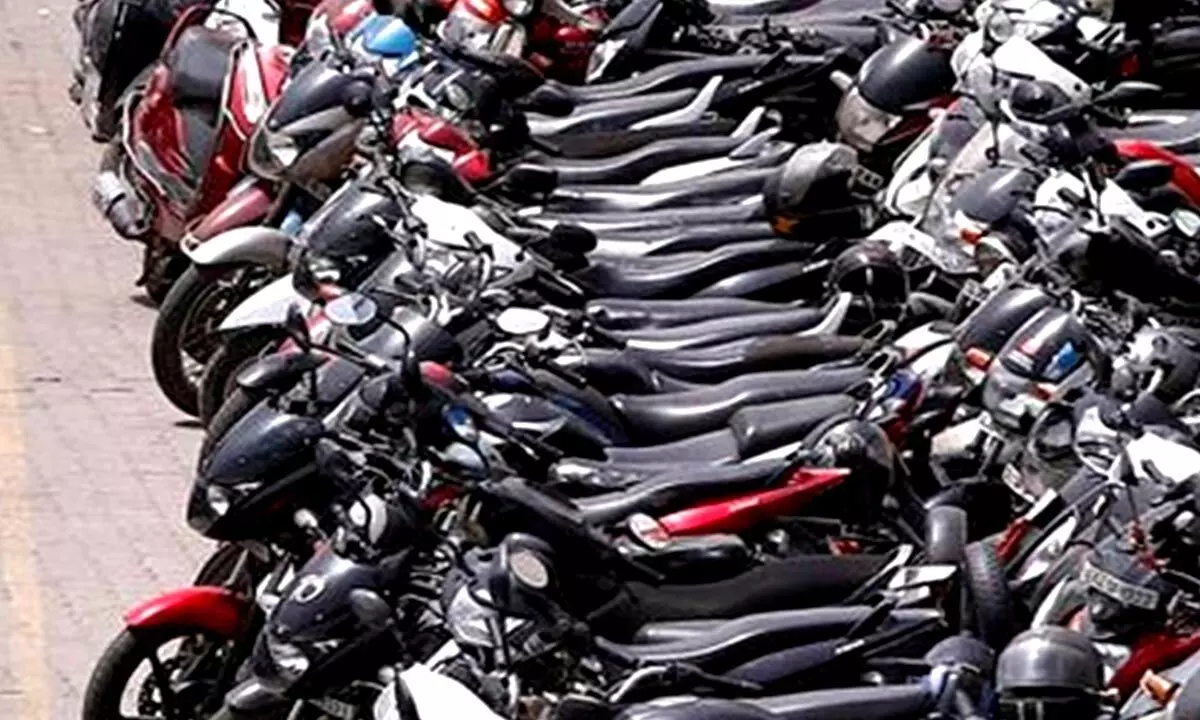Auto sales remain in slow lane in FY22
2-wheeler dispatches lowest in 10 years
image for illustrative purpose

Affordability issues pull down PV sales
• Automobile dispatches from factories to dealerships in India declined 6% in FY22
• Total wholesales across categories in FY22 declined to 1,75,13,596 units, as against 1,86,20,233 units in 2020-21
• 2-wheeler dispatches declined by 11% last financial year, while passenger vehicles, commercial vehicles and 3-wheelers witnessed a growth compared to the low base of 2020-21
New Delhi: Automobile dispatches from factories to dealerships in India declined by 6 per cent in FY22, with the two-wheeler segment reporting its lowest wholesales in the last 10 years, auto industry body SIAM said on Wednesday. Total wholesales across categories in the 2021-22 fiscal declined to 1,75,13,596 units, as against 1,86,20,233 units in 2020-21. Two-wheeler dispatches declined by 11 per cent last financial year, while passenger vehicles (PV), commercial vehicles and three-wheelers witnessed a growth compared to the low base of 2020-21. Total two-wheeler dispatches stood at 1,34,66,412 units last fiscal as against 1,51,20,783 units in 2020-21. The total PV wholesales, however, rose by 13 per cent to 30,69,499 units from 27,11,457 vehicles in the Covid-hit 2020-21.
Similarly, three-wheeler sales jumped to 2,60,995 units last fiscal from 2,19,446 units in FY21. Total commercial vehicle wholesales also increased to 7,16,566 units from 5,68,559 units in 2020-21. SIAM noted that the two-wheeler dispatches in last fiscal were the lowest in 10 years. Similarly, passenger vehicle dispatches last fiscal were below 2017-18 and 2018-19 levels. Barring 2020-21, three-wheeler dispatches last fiscal were the lowest in 19 years, the Society of Indian Automobile Manufacturers (SIAM) data showed. Commercial vehicle wholesales last fiscal were also the lowest in five years, barring 2020-21. SIAM President Kenichi Ayukawa noted that despite some recovery from a low base, sales of all four segments of the auto industry were below even the 2018-19 level.
"While some segments like commercial vehicles and SUVs are seeing improvement in demand, the mass segments like two-wheelers and smaller cars are facing serious affordability issues. Of course, our immediate challenge in most segments is semiconductor availability," he stated. He further said steep increase in commodity prices, precious metals and freight rates were putting additional pressure on supply chain and profitability of the industry. Ayukawa stated that the auto industry remained at same level as five years ago due to the various challenges plaguing it. He noted that overall economic recovery and some tax benefits on entry-level cars and two-wheelers can help the sector. Reflecting on the just ended fiscal, Ayukawa noted that the year was full of unforeseen challenges and new learnings for the industry.
"Indian auto industry has worked hard against these challenges to keep the value chain running, to indigenise parts, control cost, invest in new technologies, and enhance exports. The Government also came out with targeted support like PLI schemes, FAME scheme extension, etc," he stated. On sales growth forecast, Ayukawa said the industry was looking to post growth this fiscal but added that the chip shortage could have some adverse impact on production volumes.

